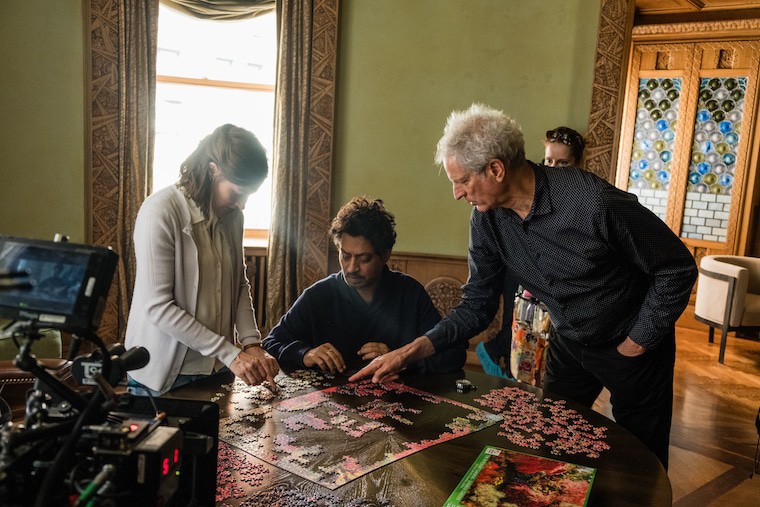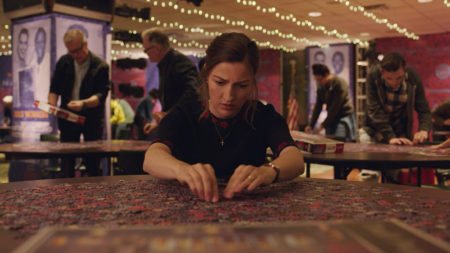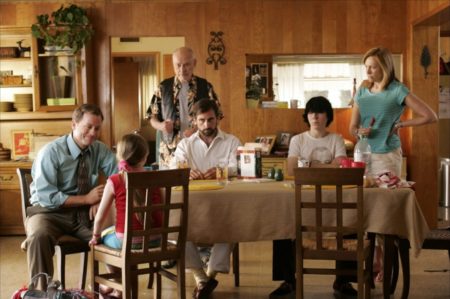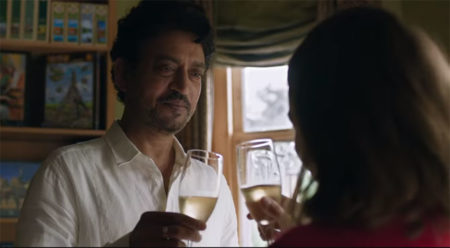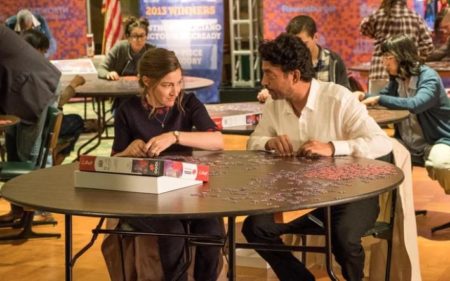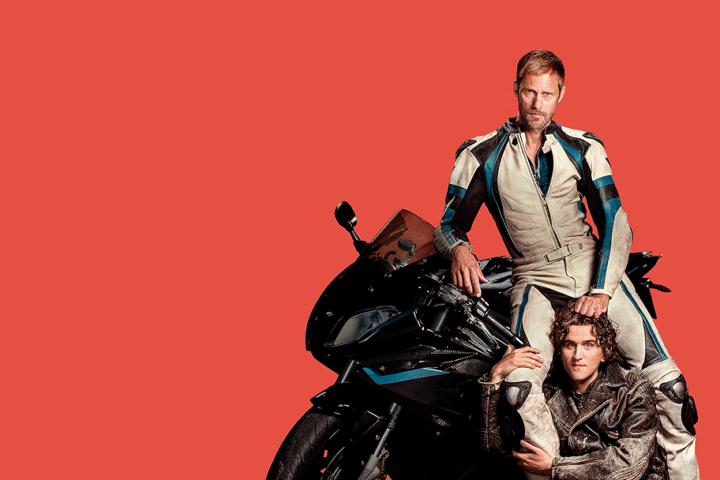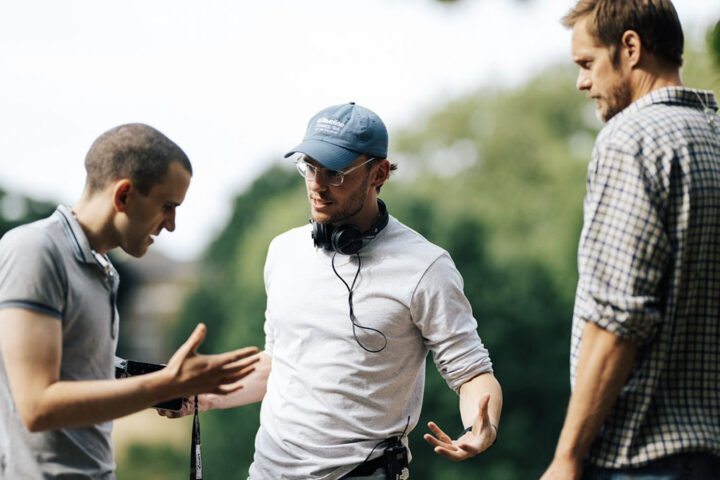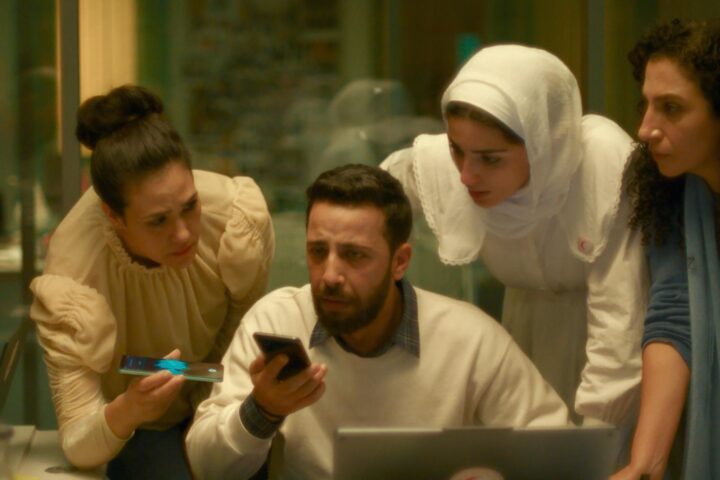Prolific, Oscar-nominated producer Marc Turteltaub (Little Miss Sunshine, Safety Not Guaranteed, Loving) steps into the director’s chair to mount a quiet story of liberation in his first picture Puzzle, featuring a career high Kelly Macdonald as a subservient, suburban New York housewife and mother who finds a talent for jigsaw puzzles and a friendship with Irrfan Khan, a Manhattan inventor instrumental in her self-actualization. It’s a low-key character study with reserves of feeling courtesy of its actors, particularly Scottish star Macdonald in the radiant lead performance, which in a perfect movie world would finally catapult the hardworking actress to stardom.
I caught up with Marc Turteltaub recently to chat about Puzzle’s star turn, his thoughts on finally getting behind the camera and his passion for telling stories about real people, a novelty in a commerce driven industry.
Kelly Macdonald has been giving terrific performances for about 25 years but perhaps never front and center to this degree, at least in as complex a role. She projects such goodness; a niceness that’s hard to capture. I think it is probably easier to act extremes, but much harder to convey goodness as she does.
There are certain people that you immediately feel empathy for and I think she is one of those people. Beyond that I fell in love with her. Of course, I saw her in Trainspotting but I didn’t remember that. I fell in love with her in a little movie called The Girl in the Café with Bill Nighy years ago. I really loved her. And then of course I saw her in No Country for Old Men where she plays a Texas girl. And then years later in Boardwalk Empire. She is such a chameleon and I was quite taken with her and thrilled to have her. And then we were able to get Irrfan Khan who wanted to have a movie like this. It is very easy to work with a Kelly Macdonald because she brings so much to the table. And we didn’t rehearse.
You don’t like to do that, do you?
I’ve learned not to. I think earlier I wanted to control everything, and a few years ago I read an interview with a famous director where he said, ‘Every time I cast an actor it’s like a little death.’ What he meant was, ‘I’ve got an idea of how I want that character to be played and they are not going to play it exactly the way I see it in my mind.’ I look at it just the opposite. I don’t know what they are going to bring. If I am working with amazing actors, which I was fortunate enough to have, then they will bring something I did not expect and something alive and fresh.
Like the way she delivers that close-up at the end. Isn’t that terrific?
Oh, I love that.
Her family life feels very real, especially her relationship with her husband played by David Denman, who is not able to be written off as stereotypical. He has some very good qualities.
I think the writing is very smart, Lee. What draws me to any good screenplay is characters that are not stereotypes. He is not. He’s complex and that makes him interesting.
He is terrific, particularly in his reaction when he asks her whether she is having an affair.
Yes, it breaks your heart, right? And when he is looking at her foot near the end of the movie there is so much empathy there. And yet, there is also humor with the kids. It’s a really good screenplay.
Outside of her own pursuit of the puzzle part of the story, I was struck by the film’s depiction of family dynamics, for example dealing with how the money will be spent. I thought the navigation of that, and the scene where she is sitting on the porch with her son, was very believable.
I’d like to take credit for all that. I had a great screenplay and much of what you see on the screen was on the page. That does not happen a lot. Often, we get a screenplay—or develop one from scratch or from an idea or a book—and it’s iterative. It takes six months or a year, or two years. This time what you see onscreen was mostly all on the page. So when I read it, I said, ‘That’s a real family. I know that. I can imagine those people.’ It just makes your job that much easier. Then when you cast really good actors like David, whom you mentioned, who gives it a heft that makes you believe he’s a real person.
Now that you mention it, I felt that in Little Miss Sunshine as well. There’s a scene early in the film where the family is having dinner and Toni Collette puts down these two liters of soda. I always felt that was so real.
And the bucket of chicken that I think was from Popeye’s! I don’t think we could get the rights to a bigger name chicken place. And I think it was a bag of froze ice pops. And that’s how they lived. And it’s those little details that make it work. And that’s surrounding yourself with good people, like our wonderful costume designer. She designed a dress for Kelly to wear near the beginning of the film that blended into the wallpaper. And not in an obvious way, but very subtly. And that is who she is in the beginning. So lots of little pieces go into making something authentic.
We like her so much that we are waiting for that awakening to happen. I was really surprised about two-thirds of the way through the film that she actually is in Manhattan, in Irrfan Khan’s apartment, and that they are having this relationship that we never would have thought that character would have, and she likely didn’t either. It takes her far, doesn’t it?
Yes. Somebody said to me recently, ‘The movie kept surprising me.’ And that is wonderful because it is hard to do. We have seen so much and are so sophisticated now about movies and stories that this is a story that, at least for me, keeps surprising.
I think the thing I liked about it the most is that it says you may accidentally discover, at any point in life, that you are great at something that may come as a complete surprise. And it questions what it would take for that to happen. Her character lives in quiet resignation, is a good wife and mother and a servant to her family. She discovers a passion but also a great talent.
Yes. Without sounding too philosophical and making the movie sound too heavy, many of us don’t know who we are or why we are here. And this is a story about someone who finds out a little about who she is. In the end, it’s not about jigsaw puzzles but rather about who she is as a person. We get to see her humor, wit and intelligence in ways not defined by other people.
I think it’s hard for many male actors to convey emotions as Irrfan Kahn does in the final scene during that phone call. It’s hard to say, ‘I love you’ and make it sound interesting.
Yes. You said two interesting things to me during this conversation. In the beginning you said it’s hard to be innately likeable and it’s hard for male characters to say I love you. Damn it! (laughs) But you do believe it. He is an interesting character for me. I found him fascinating. I knew he was great, but I didn’t know how he would be great in this movie. And he brought a quality to it that is quite unexpected.
When you got into the game of producing movies you probably could have taken whatever route or direction you wanted, but you chose to make small films. I think you said you wanted to make films that affected you emotionally or that could affect some sort of emotion or change in people. Why that route instead of blockbusters?
That’s a good question. I am just not a guy- I don’t go to movies which are sequels. I’ve seen some, but it’s just not what I am drawn to our where I live. I have always loved independent movies and if you look at the Academy Awards over the last several years, and not always just the winners, you will see independent movies that are unique and not stereotypical. And yes, I love movies that are about something and there is meaning, but where it is not worn on its sleeve. So you always want to entertain, but you want more than just that.
Do you think that these movies are an endangered species in a way? Years ago, we used to have a good number of big studio divisions dedicated to these types of films devoted to producing films such as these. Maybe that was the indie boom in the late 80s and throughout the 90s, but it seems to me that today we only see those from October to December and the rest of the year we are out of luck.
It’s changed, yes. It keeps changing. And that is part of being in any business, and this is one that combines art and commerce. But those days you mention, where you had DVD sales that were propping up the independent movies, have changed. Now you have streaming and other avenues of getting your media. But the flipside is that you can make movies a lot cheaper now. You see them being shot on an iPhone.
Like Sean Baker’s Tangerine.
Tangerine is a perfect example. So even at the level that we are making movies and we are able to make them a lot quicker and often with less light, and it looks exactly the same, and we are able to move quicker and be more facile. So I think that is the positive. There is an enormous number of movies made that I would call independent, they just are not happening through the arms of big studios.
How do you feel about the push-pull between streaming platforms like Netflix and Amazon and traditional and theatrical distribution model? Recently, Steven Spielberg drew a line of distinction.
I want people to see our movie in the theater because I think it’s a beautiful movie, and there is nuance you see on the big screen. Also, that dynamic of being in the theater with other people at Sundance where we premiered is one you cannot get in your living room. That said, I appreciate any opportunity for films to be seen by people. Elizabeth Olsen recently said something similar, which was that if Netflix, Hulu and Amazon are opening up a world and a way for these films to be seen then I support it.
What’s the best part about your job?
Two things. I am a storyteller and so I get to tell stories. I love stories. I love to read them, watch them and tell them. And without sounding pretentious, I love to in some way inspire people and be able to touch people in that way.
You moved from producing to directing. Did you always know that you wanted to be a little closer to the action?
Yes, the more I produced—and I will continue to—the more I wanted to get my hands dirty. It was in the back of my mind that I would either write or write and direct at some point.
What were the easiest and hardest days on this shoot?
It will sound unbelievable, but we didn’t have a hardest day. This movie was so easy due to the combination of this crew and cast. I did not hear one argument in thirty days, and that is rare because you are working under time and budget constraints. This was maybe the easiest movie that we have made in the fifteen years I have been making movies. And I think I enjoyed the whole process. When you start working with an editor and you sort of crack something in the editing room there is an enormous satisfaction, much in the way that when you are writing you get that same satisfaction from completing one or two pages. To be honest, I enjoyed every step in the process of making the film.
So when you say ‘crack something in the editing room’ do you mean that suddenly, for example, the movie takes a different narrative direction?
Yes! Well, as you know there are three different movies you make—the one you write, the one you shoot and the one you edit. If you are a good director, you have to let each one go along the way. And I have such a profound respect for good editors. I had two great editors here and between them they crafted something I that I wanted but maybe did not know I had captured. And you change sequencing of scenes. You move a scene around. And in the first cut I had to get more close-ups. And we needed to do a cut where we developed the relationship between Irrfan and Kelly. So we did one of those. And suddenly, whole different dimensions come along. If you are good you will get enough coverage so you have choices, which is critical. Until you get in the editing room you don’t really how it is going to end up.
It’s interesting to hear you describe this because we always think of a screenplay as rather lockstep, with an inciting incident, turning point on page 25, “all is lost” moment two-thirds of the way through and so forth. But you are saying it can take almost any shape.
It does if you capture enough! We shot two endings to this movie because I was not sure how I wanted to end it.
Are you going to share the other ending with me?
Um, I don’t want to ruin it for everybody! But I’m very happy with the ending we chose because for Kelly’s character it feels right that she is living authentically. We don’t know where she is going to go, which felt like the right place to end it. It’s hopeful.
And also a bit of a heartbreaker.
